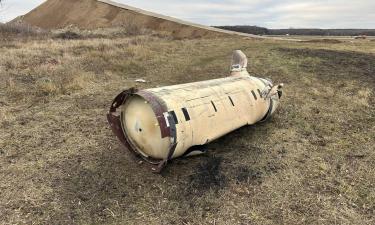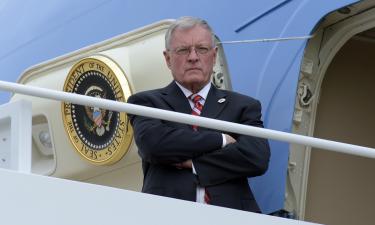US troops not welcomed in Haiti
 The US troop in Haiti are facing anger and resentment from the local population.
The US troop in Haiti are facing anger and resentment from the local population.
They have not succeeded so far in the task of searching for weapons and to restoring order, 90 days after the coup that ousted President Jean Bertrand Arisitide.
Deploying US troops in the Caribbean island of Haiti has been a long-standing tradition. Not to mention prior military interventions that took place earlier in the XX century, western poorest country had two in ten years. The first intervention in 1994 was organized by president Bill Clinton to reinstate Aristide in power after being toppled by the internal coup. The second one in 2004 was arranged by George W. Bush to oust Aristide.
The US troops are confronted daily by hostile and rebellious street gangs. Their main task there is to restore order by searching for weapons among the population and patrolling the streets.
However, after six weeks into the mission, the 2,000 American troops have confiscated fewer than 150 weapons among the thousands held by rival factions. And in six weeks, the US soldiers will give way to a UN force led by Brazil. Currently, US soldiers are being aided by Chilean and French troops.
On a one-day visit this week to Port Au Prince, US Secretary of State Colin Powell pledged support but made no long-term promises. He said the administration does not plan on spending more than the US$55 million earmarked for Haiti -- about US$20 million less than last year and a fraction of the $235 billion that flowed months after the last intervention.
During the first day of the military intervention, Aristide’s supporters clashed with US marines and fears about a general fight in the streets of the Capital grew bigger. However, from his exile in Africa first, and in Jamaica, then, Aristide asked his followers for a peaceful resistance, and no more deadly clashes were reported.
Haitians accused the Americans of being trigger-happy and noted French troops have not once been fired at or used their firearms. US officers responded that the Americans patrol the most dangerous areas, the sprawling slums that are strongholds of Aristide supporters. The relation with the French is far more friendly, as they speak a language close to Haiti's Creole.
According to official reports, the primary goal of the US force in Haiti is to bring order ahead of the arrival of a UN force scheduled to take over in June. Brazil will lead the force and plans to send about 1,500 army, navy and air force troops. Other Latin American countries such as Peru and Argentina indicated they could contribute troops to the peacekeeping mission, expected to last six months, but refused to send men under US command.
Hernan Etchaleco
Subscribe to Pravda.Ru Telegram channel, Facebook, RSS!




